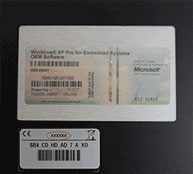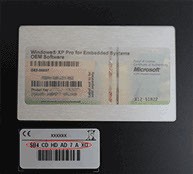Windows is the most preferred operating system for industrial computers. It is compatible for tough applications. And, it is easy to install to the computing system. This is true in most of the distribution operations and services.
But, Windows OS needs more space storage every time it makes an update into your system. You must also ensure your device has an adequate space for applications and storing of data. So, what happens to your embedded computers if it has reached its storage limits? It usually affect its computing speed, communication bandwidth, and other functions.
But, good thing, there is also another option. All you need to have is a rugged panel PC with a Linux operating system. Although Linux OS go unnoticed by most users, it has almost the same capability with that of a Windows OS. Yet, it offers a sleek, functional and user-friendly computing environments compared with Windows.
Read on and learn how a Linux OS can save more space in S12 rugged panel PCs for your distribution processes today.

Why Choose a Linux OS for 12.1 Computer Panels
Majority in the distribution industry utilises 12.1” embedded computers. These computing devices are reliable and can adopt harsh environments. But, its functions might be jeopardised if the storage capacity reaches its limit.
Upgrading the computer technology may give you another big investment. You can avoid this by choosing the right OS upon purchasing your first set of computing device.
Whilst Windows are compatible for any application, it also consumes space. But, with a Linux-based computing device, you can utilise its storage capacity. And, who says it’s not user-friendly? Well, it’s just that it doesn’t get so much attention from system operators. Or, perhaps, others are not aware of its existence.
So, how do they stacked up against each other? Let’s find it out.
Finding the Right OS for Extremely Used Embedded Panel PCs
A computing device is only functional when an operating system gets installed. But, computer storage plays an important role in choosing the right processor. Thus, choose an embedded panel device that is compatible for its operating system. Likewise, it can still deliver exceptional quality and overall performance.
Now, why do we recommend Linux over Windows? Let’s compare.
S12 Linux-based Panel PCs Versus Windows-based Panel Devices
| 12.1 Linux-based Rugged Panel Computers | Other Windows-based Panel Devices |
|---|---|
| Linux is an open source kernel. It can be modified and altered by anyone to create their own custom versions of the software. Some software developers online offer bug fixes, enhancement and support. | You have a few limited options in terms of getting more storage space. |
| You can reduce the number of programs, including background services, running at once. | Windows lets you disable a few animations and adjust the theme. But, you will be trapped with the Windows graphical user interface. And, this is not all that lightweight |
| You can switch from one distros to another based on your preferred functionality of the PC. You can actually save lighter resources on doing this. | Running light apps in a heavy environment will only get you so far. |
| You can reduce the strain on your hardware with one of the many lightweight apps available for Linux. |
So Which One Uses Less?
You can find a lot of distros to advance your computing system. In Linux OS, there are hundreds. So, you would have a lot of choices to choose from. Linux distros can wildly vary in design, functionality, and sophistication. But, most of it only consumes less storage space.
Meanwhile, in Windows, you only have limited distros to choose from. Each time you upgrade the Windows OS, it also eats up the storage space. So, it will limit the communication bandwidth, computing speed and other functions. As an end result, operations and services will be affected as well.
And, you would probably opt for a Linux-based industrial PC before any worst case scenario.
Get a Stress-Free Computing Equipment with Us
Investing a new computing technology for distribution processes and operations is quite expensive. But, we guarantee you will have the panel device with the best product specifications.
What’s more, we also offer custom-designed panel computers. Should you opt to run your panel device with a Linux-based embedded system, we are here to help. Contact us today and customise the S12 computing device from us.
Sources:
Does Linux Use Less RAM Than Windows?, Makeuseof.com
Windows vs Linux: what’s the best operating system?, Itpro.co.uk
Other articles worth reading:
Thinking of Touch Flat Panel PC for your Business? To Invest or Not?
How A Panel PC Streamlines Your Retail Business in a POS System
Add Value to the Military Technologies with a Waterproof Panel PC
Problem viewing the content? You can view and download PDF version of the content here.


